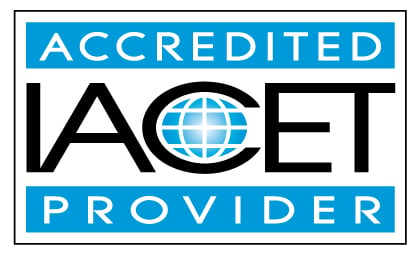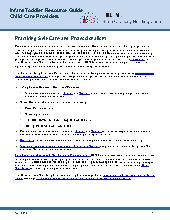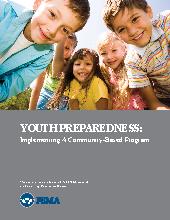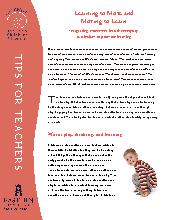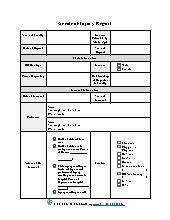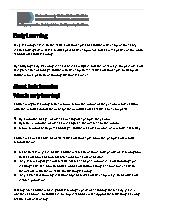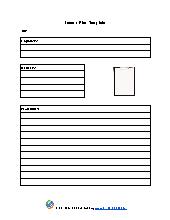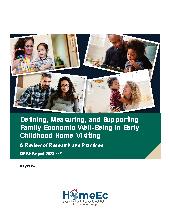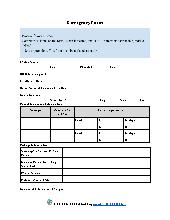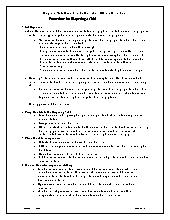Early Childhood Program Administration
Directors in childcare programs need to understand a variety of business and management practices as well as components of professionalism. Administrators who have adequate training in program planning and development and professionalism and leadership, are better capable of developing and maintaining a successful program. Learn the skills necessary to plan, budget, staff, and monitor your childcare program while supporting diversity, equity, and inclusion with children, families, and staff.
By the end of this training, the learner will be able to:
- Give examples of ways to apply and model ethical behavior and professional integrity with all children and youth.
- Give examples of ways to apply and model ethical behavior and professional integrity with community members and organizations.
- Give examples of ways to apply and model ethical behavior and professional integrity with families.
- Identify and contemplate bias and explore anti-bias approaches that support working with children and families.
- Identify staff evaluation tools and evaluation timelines that will assist with staff supervision and monitoring performance
- Identify a variety of marketing platforms to promote childcare programs.
- Identify and demonstrate an understanding of the content requirements for staff orientation.
- Demonstrate understanding of the roles and responsibilities of an administrator in a child care program.
- Define what it means to be a mentor.
- Explain the value of self-evaluation and reflection.
- Identify the different roles and responsibilities of a coach and of a mentor.
- Define SMART goals and describe its historical context.
- Recognize the importance of maintaining confidentiality and privacy in communication with staff.
- Describe ways child care professionals can support advocacy issues.
- Identify the aspects of establishing a family child care business.
- Demonstrate an understanding of child care policies, licensing regulations, and legal and advocacy issues.
- Identify resources that will assist with record keeping.
- Identify the importance of problem-solving and conflict-resolution strategies with colleagues and administrators.
- Define what it means for administrators to mentor staff in early education.
- Define culture and cultural competency
- Demonstrate understanding of the content and implications of environment regulations and supervision requirements
- List which professions are mandated reporters.
- Identify ways to reflect on one's own personal perspectives with courage and/or humility
- Identify ways to interact respectfully and appropriately in a variety of cultural contexts
- Define resilience and identify ways it helps young children overcome toxic stressors.
- Recognize informal and formal assessments to plan activities, individualize programs, and improve program quality.
- Demonstrate an understanding of the impact of culture and diversity in relation to school readiness.
- Demonstrate an understanding of potential violations of confidentiality and take steps to reduce the risk of occurrence.
- Define the meaning of professionalism in child care.
- Give examples of ways to apply and model ethical behavior and professional integrity with staff and administrators.
- Identify strategies to make connections and interact substantively with those who are different from oneself
- Identify strategies to listen while withholding judgement about the new or unfamiliar
- Identify effective strategies for interviewing potential new staff.
- Explain the importance of two-way communication.
- Demonstrate understanding of developing strategies for involving parents in the child care setting.
- Identify the signs of child abuse and neglect.
- Identify positive leadership techniques.
- Identify types of supervision.
- Demonstrate an understanding of how to be open to new perspectives and diverse others.
- Describe ways child care professionals can display leadership with families and the community.
- Define the role of a Coach for child care providers
- Identify the key elements of an effective staff mentor program.
- Identify necessary information and format for a business plan
- Demonstrate an understanding of the overall cost of child care
- Demonstrate an understanding of ethical conduct: Statement of Commitment & Preamble
- Demonstrate an understanding of the necessary content of employee and parent contracts
- Identify ways to help parents and infants/toddlers handle separation and attachment.
- Describe new methods to increase the positive emotional climate within a childcare program.
- Recognize the importance of maintaining confidentiality and privacy in communication with families.
- Demonstrate an understanding of diverse perspectives, and navigate the ambiguity and complexity that comes with that.
- Describe the importance of responding sensitively to differences in individual communication styles.
- Demonstrate communication skills that enable intercultural communication, including effective listening skills
- List the steps to complete a report on abuse and neglect.
- Identify the importance of professional development for child care professionals and strategies to make meaningful choices.
- Demonstrate an understanding of the importance and components of a mission statement.
- Demonstrate an understanding of transitions within a child care program.
- Identify the symptoms and signs of poor time management in the child care environment.
- Explain the impact of stress on health and environment.
- Recognize the importance of problem solving and conflict resolution strategies with community members and families
- Explain the importance of using contracts and employee training & screening procedures.
- Identify communication issues that are common in the early care and education environment
- Recognize current tuition trends
- Identify budget line items and basic budget development strategies
- Criteria to earn CEUs:
- Certificates are awarded when the following criteria have been met by the learner:
- Class has been paid in full
- All material has been reviewed
- All review questions and final test have been completed with a passing score of 80% or higher.
- Learning Assessment Method:
- Learners will be assessed through questions after every section is completed. Learners will not be
allowed to proceed to the next section of the training until all questions have been answered correctly.
Learners will be presented with a final test composed of true/false and multiple choice questions.
Upon successful completion of the training, learners will receive their certificate by email.
- Learning Methodology:
- Online material will be presented in the form of slides,
accompanied with speech. Videos will be used to demonstrate ideas and concepts. Charts and tables
will be used for illustration.
- Logistics/Required Technology:
- A stable internet connection is required for the completion of this course. Users are highly encouraged to take their online course on Google Chrome on either a laptop or desktop computer. Speakers and/or headphones are also required to hear speech.
- Payment Policy:
- Payments need to be made in full. No refunds will be issued after starting the class.
- Proprietary or conflict of interest disclosure:
- Unless otherwise stated in the course description none of H & H subject matter experts and editor has any conflict or proprietary interests related to the material they prepared in this course.
- Support Services:
- Please visit our contact us page
You are purchasing a session of an online training that includes online assessments. Your certificate will be emailed to you once you pass the final exam with a passing grade of 80%.
Your certificate will bear the name you provided to us when you signed up. For support and questions regarding the material presented in this class please contact us at info@childcareed.com. Please consult our frequently asked questions page for other questions or feel free to contact us.
No prerequisites are required for the completion of this course.
Hours breakdown
32 PROTopics / Categories
Group AdminAdministrators
Program Operation
Professionalism
Basic
Community and Family
Administration and Management
Latest Jobs
- UNITED STATES OF AMERICA - Indiana
- UNITED STATES OF AMERICA - Nebraska
- UNITED STATES OF AMERICA - Tennessee
- Looking for a Career Change?
- Canada - Manitoba
- Focus on Health and Safety Training
- Navigating Michigan's Child Care Crisis through a Rewarding Career Change with ChildCareEd
- Great Start to Quality in Michigan and ChildCareEd's Role in Advancement
- ChildCareEd is coming to Michigan!!
- Master Child Care Administration with ChildCareEd
- Early Childhood Program Administration: A Comprehensive Training Course
- Where to Find the Best Early Childhood Education Courses
- Lead the Way: How to Become an Early Childhood Director in Alabama
- Beyond the Basics: Specialized Child Care Training Courses That Elevate Your Expertise
- 🌽From Cornfields to Classrooms: How to Become a Preschool Teacher in Indiana🧸
- 🏜️ Nevada Online 45-Hour Director Administration Training
- Child Care Professional Development in Pennsylvania
- Medication Administration Training in Nevada

